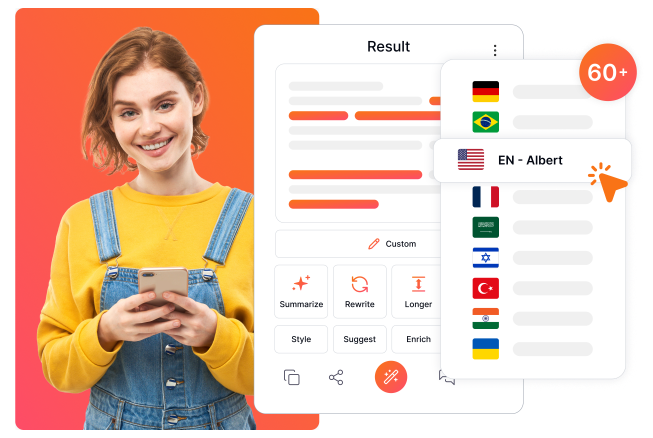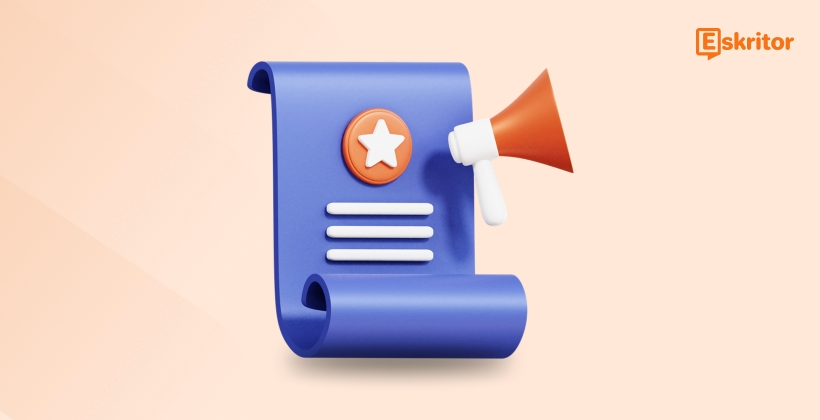Mastering Content with AI Editing Tools
Mastering Content with AI Editing Tools
Blog Article
AI Writing Tools vs. Human Writers – A Comparative Analysis
Synthetic intelligence (AI) publishing technology has evolved quickly in the last decade, reshaping the way in which we build and interact with written content. From syntax modification tools to AI-generated books, the options look limitless. But where just is this engineering heading? Let's explore the innovations, challenges, and possible future of AI Editing.

How AI Publishing Technology Performs Nowadays
At their key, AI publishing engineering depends on Organic Language Processing (NLP) and device learning. These systems allow designs to understand, create, and improve human language. Instruments accessible today do well at jobs like:
1. Material Generation
AI has achieved a place where it may create complete blog articles, social media sayings, and also media articles. Some models are capable of mimicking human publishing styles so efficiently that unique between AI- and human-written content is becoming significantly difficult.
2. Syntax and Model Recommendation
AI-powered writing assistants don't only check for syntax and punctuation mistakes; they also offer ideas to enhance tone, clarity, and syntax, making complicated publishing available to a wide audience.
3. Feeling Examination
AI can assess the psychological tone of a piece, enabling organizations to evaluate how their communications can resonate with readers. That is specially of use in advertising and customer interaction.
The Recent Developments in AI Writing Technology
A few styles are shaping the following phase of AI-powered writing resources:
• Personalization
AI writing technology is significantly capable of tailoring content to personal preferences. Designs may adapt to a user's writing style, ensuring the result thinks authentic.
• Multilingual Functions
Many AI methods are increasing their world wide achieve by giving enhanced interpretation features and support for numerous languages.
• Increased Research Functions
AI tools now possess the capability to analyze huge amounts of data and offer fact-checked, well-researched writing in seconds, simplifying the process for specialists in industries like legislation, financing, and journalism.
What the Future Keeps for AI Writing Engineering
1. Increased Imagination
While recent AI is successful at generating content, their imagination is still restricted to patterns within their training data. Future AI isn't just expected to assist but to generate original, informative performs that challenge individual imagination.
2. Smooth Cooperation
Envision an AI that performs along with you in real-time, finishing your sentences, completing live edits, and actually brainstorming ideas. AI publishing methods may soon become co-authors, enabling creativity to flow uninterrupted.
3. Honest and Accessible Design
With rising matter about plagiarism, misinformation, and bias, developers are working toward more clear AI teaching functions and ethical implementation. Potential tools will more than likely offer more extensive citations and measures to ensure accountability.
Challenges and Factors
The development of AI publishing technology isn't without hurdles, including:
• Honest Issues

Who owns content produced by AI? How can we ensure AI-generated content is not spreading misinformation? These debates stay unresolved.
• Human-AI Balance
May AI match human creativity or totally change certain functions? Several authors and artists be concerned about their relevance in a AI-driven world.
• Convenience Divide
Not totally all organizations or parts have identical usage of cutting-edge AI resources, raising questions about the impact of this technology on worldwide inequality.
Changing the Way We Write
AI writing technology remains in its infancy in comparison to its potential. Whether you're a student crafting essays, a content marketer targeting unique readers, or even a novelist seeking creativity, AI methods may continue to revolutionize the writing process. The following decade claims breakthroughs that blend individual ingenuity with device intelligence, making a future where publishing is more efficient, available, and impactful than ever before.
Report this page